Erasures Against Erasure: Four Visual Poems by Lisa Huffaker
Artist Statement
by Lisa Huffaker
Fascinating Womanhood was a bestselling “self-improvement” book for wives, published in 1963. It became the manual for the “femininity” movement of the 60s and 70s, promising women who felt alienated by second-wave feminism that all would be well if they would become “ideal women” – by suppressing their own capability, showering their husbands with flattery bordering on worship, and making themselves adorably girlish. It was written by Helen Andelin, whose religious background matched my own. My alteration of the book began in college, when I discovered it in the library where I attended religion classes. Repulsed by the book’s gospel of self-limitation, I penciled a faint protest in the margins and returned it to the shelf. Then I went on to live my messy life, which was full of the tensions all women face.
Decades later, I found a yellowed copy of the book at a thrift shop, and bought it with the intent to burn it. But that would not be enough; for me, the book’s message – that my aspirations toward strength and self-possession were unnatural, selfish, and immoral – acted as a sort of personal kryptonite, exacerbating my own tendency toward paralyzing guilt and self-doubt. I knew I could not neutralize that power by destroying one random copy. But what if I could do battle with the content, confronting it page by page, word by word, and deliver poetry, art, and defiance from this text? Yes, but I was so disheartened by this book that for years, every attempt to undertake the project soon flickered out. Not until my child was grown, and not until the pandemic lockdown of 2020, did I find myself free enough to undertake it.
The act that allowed me to move forward was this: I cut off the spine on a bookmaker’s guillotine, and absolved myself from the obligation to take the pages in their original order. Even then, the book’s limited language gave me difficulty – how could I wrestle poetry from such an impoverished text? Soon, necessity forced me to invent new techniques, to free me from the order of the language, as well as the pages. I began to build words I needed, one letter at a time, and drew ligatures to carve a new path for the reader’s eye. The work has been painful: at every step, I have felt the fact that I am not the kind of woman my culture raised me to be. Yet, finding many women’s names in the source text, I imagined each of them as a protagonist in her own story, fighting for the same dignity I yearned for. When it was difficult to work for my own sake, I found I could work for them.
And I am nearing completion: the book lies before me, transformed, nearly in its entirety, into its own rebuttal. The work has also transformed me: bound by the straitjacket of this text, I am finding ways to move. Gagged by it, I am finding a way to speak.
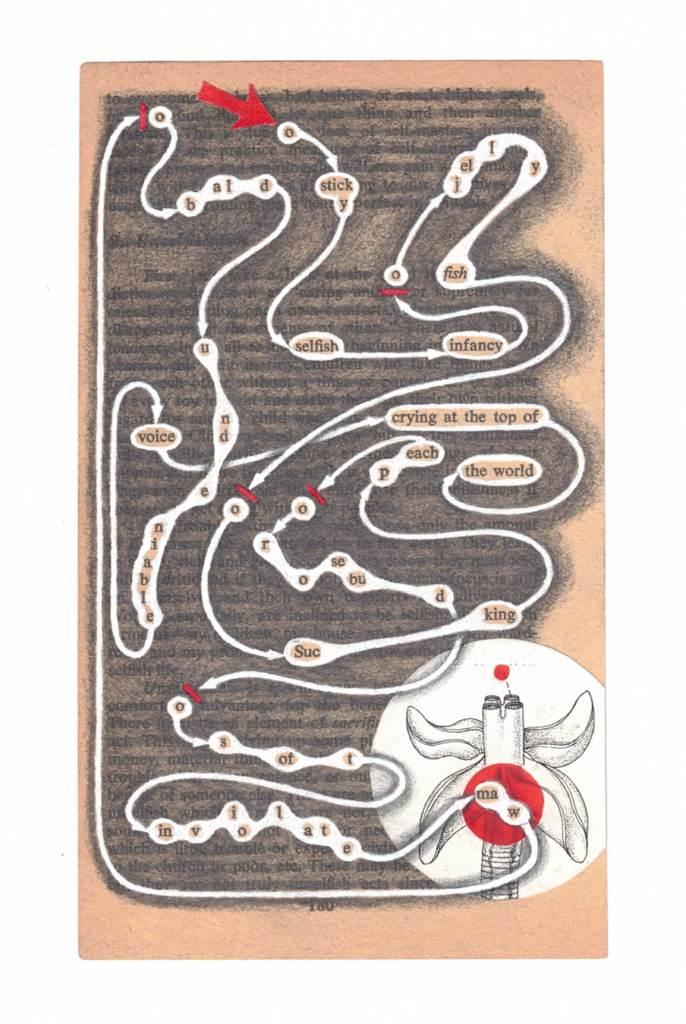
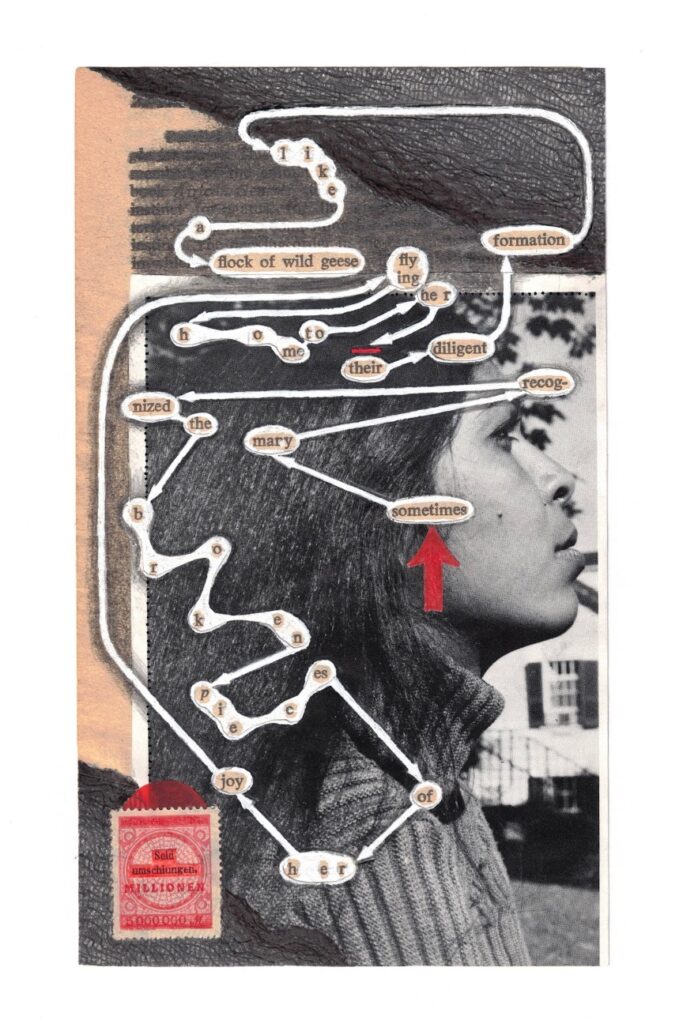
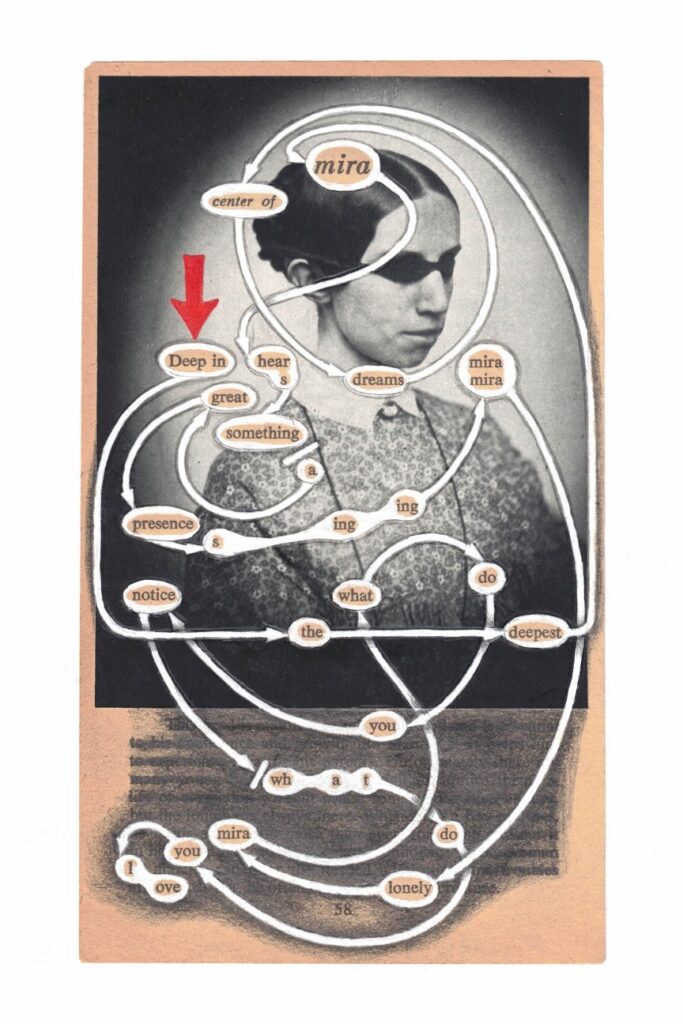
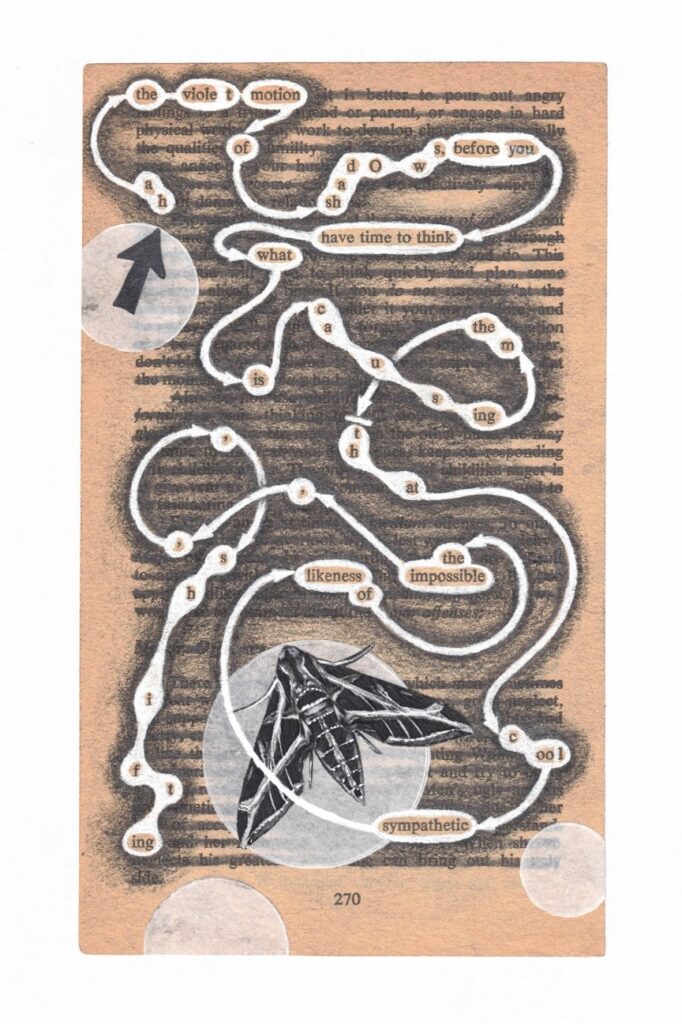
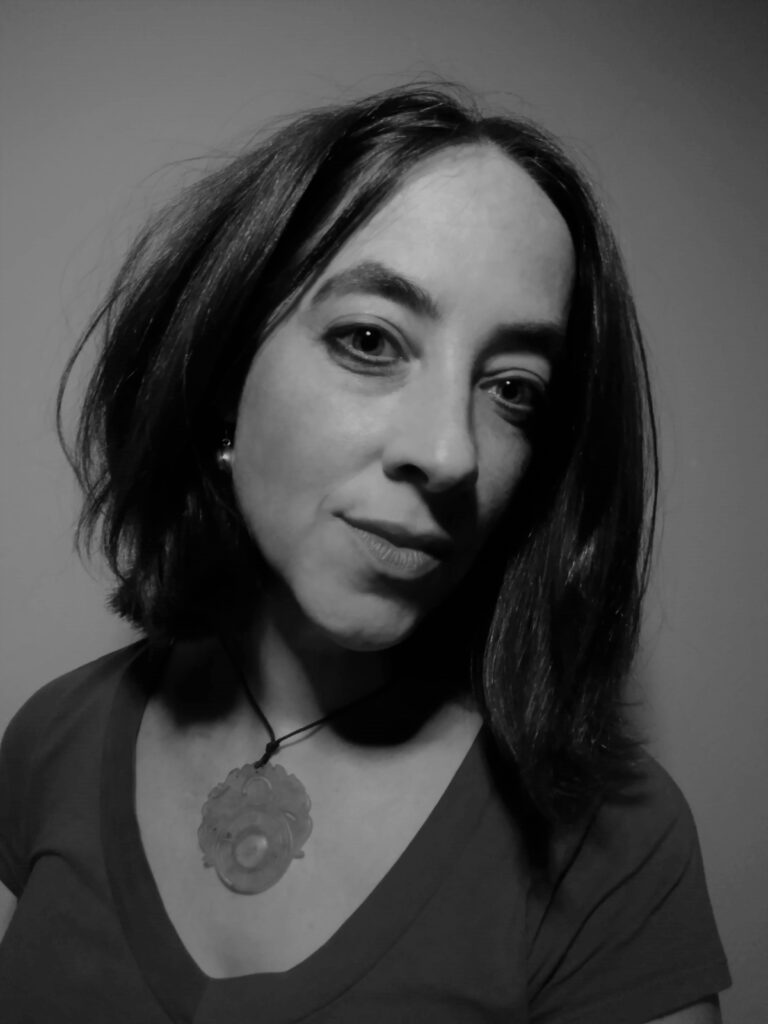
Lisa Huffaker creates poetry, collage, assemblage, artist’s books, and many combinations of these. Her poetry appears or is forthcoming in Gulf Coast, Cincinnati Review, DIAGRAM, Diode, Phoebe, Michigan Quarterly Review, THRUSH, and many other publications. Her art is on view at the Bath House Cultural Center, and her visual poetry was exhibited internationally, as part of TU Delft and Cornell Tech’s 3rd Workshop on Obfuscation. She is a frequent visiting artist at the Nasher Sculpture Center, and was C3 Visiting Artist at the Dallas Museum of Art. Recently a finalist for Dallas Poet Laureate, she is Teaching Artist in Residence at the Writer’s Garret.
